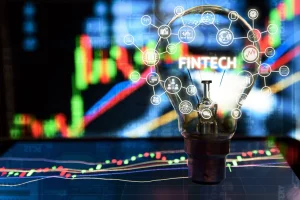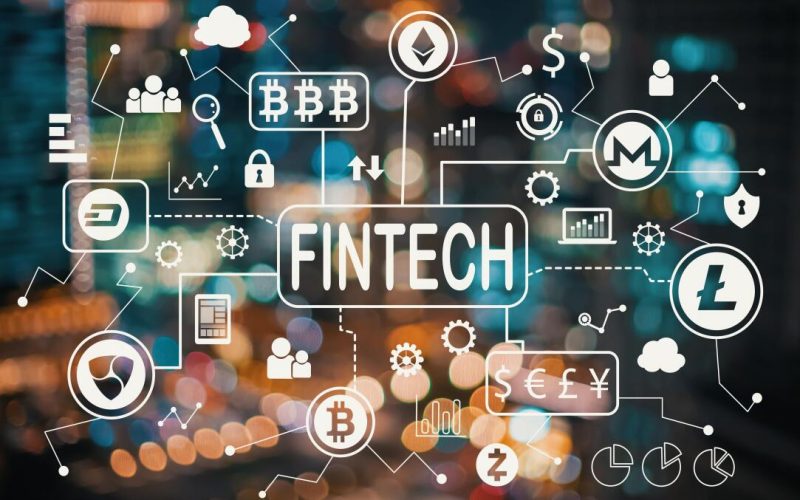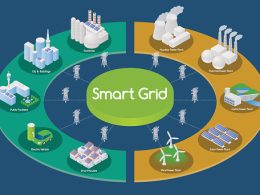Financial technology, or fintech, is rapidly reshaping the way consumers and businesses manage, transfer, and grow money. From enabling seamless digital transactions to revolutionizing traditional banking systems, fintech is driving an unprecedented wave of transformation in the global financial industry.
For fintech enthusiasts, investors, and financial institutions alike, staying informed on the latest innovations isn’t just an advantage—it’s a necessity. With 2025 spearheading new trends in blockchain, artificial intelligence (AI) in banking, and digital banking solutions, this blog breaks down the key fintech innovations you need to know about, how they’re disrupting the financial sector, and where the opportunities lie for innovators and investors.
What is Fintech, and Why Does it Matter?

Fintech refers to the integration of cutting-edge technology into financial services to improve efficiency, accessibility, and transparency. Covering everything from mobile payments and online lending platforms to cryptocurrency exchanges and robo-advisors, fintech is designed to meet the evolving demands of modern consumers and businesses.
The industry is flourishing, and for good reason. It eliminates inefficiencies in traditional banking systems and offers enhanced convenience, empowering individuals and businesses to take control of their finances. Whether using a digital wallet to make purchases or relying on AI-driven insights to optimize investment portfolios, fintech is becoming an indispensable tool in everyday life.
Key statistics show just how significant fintech’s impact is:
- The global fintech market is projected to reach $305 billion by 2025.
- Over 88% of traditional financial institutions believe they will lose market share to fintech startups.
- Digital payment services, the backbone of fintech, are used by 4.4 billion people globally.
But what’s fueling this colossal growth? That would be the groundbreaking innovations we’re about to explore.
The Current Fintech Landscape
The fintech ecosystem has expanded dynamically in recent years, and 2025 is no exception. With startups springing up worldwide and traditional financial institutions racing to adopt technological solutions, this diverse market has seen notable shifts and trends:
- Blockchain takes center stage as applications stretch beyond cryptocurrency into areas like digital contracts and supply chain finance.
- AI-powered solutions are helping banks improve customer experience, security, and operational efficiency.
- Consumers continue to demand mobile-first experiences, driving growth in digital-only banking.
- Embedded finance, integrating financial products into non-financial services, is emerging as a dominant trend.
Major players like Stripe, PayPal, Square, and Robinhood continue to lead the charge, while startups such as Chime and Revolut are challenging traditional institutions with accessible and user-friendly products. The focus on personalization, speed, scalability, and security ensures competition remains high, making fintech one of the most exciting industries to watch.
The Top Fintech Innovations of 2025

Here’s a closer look at this year’s game-changing innovations in fintech:
1. Blockchain Innovations Beyond Crypto
Blockchain has matured well beyond its initial association with Bitcoin. This distributed ledger technology is now powering secure, efficient, and scalable solutions in industries such as healthcare and real estate. Particularly in fintech, it’s enabling:
- Smart contracts that automate transaction conditions without intermediaries.
- Decentralized finance (DeFi) platforms, providing alternative financial systems through open protocols.
- Cross-border payments that reduce costs and processing times while increasing transparency.
2. AI in Banking Revolution
Artificial intelligence is revolutionizing banking, pushing customer insights and operational efficiency to new heights. Key applications include:
- Chatbots and virtual assistants that handle routine queries, offering instant support.
- Fraud detection systems that analyze vast data sets to identify suspicious activity in real-time.
- Robo-advisors, enabling precise investment guidance driven by algorithms rather than human intervention.
3. Rise of Digital-Only Banks
Digital-only banks, or neobanks, are rewriting the rules of traditional banking with seamless, app-based services. Institutions like Monzo, Starling Bank, and Chime operate without physical branches, which translates to lower fees and frictionless account management for users.
4. Buy Now, Pay Later (BNPL) Goes Mainstream
BNPL services, supported by fintech companies like Afterpay and Klarna, allow consumers to make purchases in manageable installments without traditional credit cards. Their straightforward, interest-free offerings are becoming a globally accepted payment method.
5. Open Banking’s Growing Reach
Open banking regulations are fostering a collaborative ecosystem where banks and financial companies can securely share data with authorization. This innovation enhances personalized financial services while preserving security.
6. Embedded Finance Transformations
Embedded finance is everywhere, from ride-hailing apps with embedded payment platforms to e-commerce platforms offering instant small business loans. This model makes financial tools seamlessly accessible within non-financial services to enhance customer experience.
How These Innovations are Shaping the Financial Sector

Fintech advancements are dismantling the rigid structures of traditional banking, replacing them with agile, customer-centric financial solutions. Here’s a glimpse into the sector-wide transformations these innovations are driving:
- Improved Financial Inclusion: Digital solutions like mobile banking and microloans offer previously inaccessible financial services to underbanked populations.
- Enhanced User Experience: Tools like AI-driven chatbots and neobanks streamline complex financial processes with intuitive interfaces.
- Cost Reduction for Businesses: Automation and blockchain significantly cut operating expenses for institutions and simplify manual processes.
- Greater Security: Innovations such as machine learning algorithms and blockchain encrypt sensitive customer data, minimizing breaches.
By putting consumers and technology first, fintech-designed services improve trust, performance, and convenience across the board.
Investment Opportunities in Fintech
From individual angel investors to institutional venture capital firms, the fintech sector offers abundant opportunities for investment. Here are the key areas to consider:
- Early-Stage Fintech Startups targeting niche markets like DeFi or green fintech.
- AI-Focused Companies creating fraud detection, predictive analytics, or customer management tools.
- SaaS Fintech Firms offering B2B products such as tax management and expense tracking tools.
However, it’s crucial to weigh risks such as regulatory challenges, market competition, and the rate of tech adoption before venturing into fintech-focused portfolios.
The Future of Fintech
The future of fintech lies in its adaptability and constant evolution. Emerging areas to watch include:
- Expansion of Quantum Computing: Expected to solve complex financial computations.
- Mainstream Use of Digital Currencies: Governments are exploring central bank digital currencies (CBDCs).
- Hyper-Personalized Financial Services: AI will refine suggestion engines and tailor complex financial products.
- Green Fintech for Sustainability: Innovations driving eco-friendly investment and payment platforms.
Ultimately, fintech’s impact will multiply as it becomes embedded in every aspect of the financial ecosystem, continuously opening new doors for improved efficiency and creativity.
Staying Ahead of the Fintech Curve
The fintech innovations of 2025 mark a pivotal moment for both consumers and businesses, offering opportunities not only for personal convenience but also for substantial growth within the financial sector. From blockchain-driven contracts to AI-backed banking services, the solutions we see today are setting the stage for tomorrow’s financial solutions.
To leverage the benefits of fintech today and keep pace with its thrilling transformations, staying informed is key. Follow the trends, research the opportunities, and consider how fintech might solve your organization’s unique challenges. Together, we can shape a smarter, more inclusive financial future.










